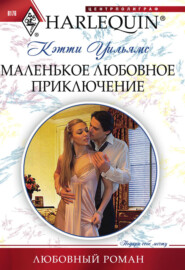По всем вопросам обращайтесь на: info@litportal.ru
(©) 2003-2025.
✖
To Tame a Proud Heart
Автор
Год написания книги
2019
Настройки чтения
Размер шрифта
Высота строк
Поля
He signed things that needed his signature, spent enough time at his country home to ensure that things were being run profitably, and there his input ceased. He made sure that all his employees were treated well, received unstinting loyalty in return, and cheerfully had his good times on some of the immense profits that came his way.
‘So tell all,” he commanded, settling back comfortably with his drink, and Francesca obliged, carefully editing out the unpleasantness of her interview. She wasn’t given to confiding private feelings to other people—a legacy, she had always assumed, of having been the only child of a single-parent family.
‘Kemp,’ Rupert murmured thoughtfully. ‘Kemp, Kemp, Kemp. I know that name.’
‘Their electronic stuff is all over the country, Rupert,’ Francesca said drily. ‘And they’re branching out all the time,’ she heard herself saying. ‘They’ve moved into Europe and are hoping to capture the Far East fairly soon.’ One day, she thought suddenly, and I sound like an advertising brochure. Had Oliver Kemp been that successful in influencing her thoughts? She found the idea of that slightly disconcerting.
‘No, no, no.’ He waved aside the explanation. ‘What I mean is this—I’ve heard of that man personally.’
‘Really?’ She felt a sudden rush of curiosity which, she told herself, she had no intention of satisfying. Oliver Kemp was an arrogant bastard, and whatever he did in his private life had nothing to do with her. She would work for him because a combination of pride and guilt would make her, at least for the time being, but beyond that her interest stopped.
Rupert, immune to subtle shifts in atmosphere, blithely ignored this one and continued in the same thoughtful voice, ‘Oliver Kemp. I’ve seen him around.’
‘You’ve seen most people around,’ she pointed out. ‘You’re hardly one of life’s shrinking violets, are you?’
He laughed, pleased at that. ‘Good-looking chap,’ he said, draining his drink and eyeing the empty glass meaningfully. She ignored the hint. As far as she was concerned he drank too much anyway, and she had no intention of assisting the situation.
‘You can have some mineral water, Rupert,’ she said eventually, and he sighed in resignation.
‘Too much of this stuff is bad for you,’ he said when she handed him the glass of water. ‘Haven’t you heard that?’
‘No, and nor have you.’
‘A glass of wine, according to the experts, does wonders for some organ or other. Heart, I believe.’
‘I would sympathise if your input was restricted to one glass per day.’
‘Oliver Kemp,’ he said, not commenting on that one, ‘was in the gossip columns not too long ago. That’s why the name rings a bell. Don’t you ever read the gossip columns?’
‘Too trivial,’ she replied airily, and he laughed with great humour.
‘Ever since they announced that we were about to become engaged?’
‘Stupid people.’ Her mouth tightened as she remembered all the fuss. One casual shot of them leaving a nightclub in London had been enough to propel them into an item, and it had been that silly drama which had led to all her father’s unfounded suspicions that his daughter was about to do something utterly ridiculous.
‘Well, they had their facts right about Oliver Kemp. He’s engaged to a woman—Imogen something or other. There was a picture of them taken at their engagement party not too long ago.’
‘Oliver Kemp is engaged?’ Her voice was high and incredulous, and Rupert looked at her with some surprise.
‘Sattler,’ he said, nodding, delighted at this triumph of memory. ‘Imogen Sattler. She’s one of the city’s top businesswomen. They squeezed in a few lines of background on her. Born up north somewhere.’ He frowned. Instant recall was not one of his strong points and he didn’t pursue it. ‘Girl makes good, type of thing. You know what I mean—parents not well off, daughter very clever, gets into Oxford University, ends up sitting on the board of one of the top companies in the country.’
That made sense. Oliver thought that she was frivolous, an intellectual lightweight who spent her time enjoying her father’s wealth—‘Daddy’s money’ would probably be the term he would use, she thought with sudden bitterness. She was a decorative little bauble who had suddenly found herself catapulted into his sphere.
Rupert was standing up, ready to leave. He had only really dropped by, he told her, to ask her out to dinner. ‘Now that you’re earning,’ he said, ‘I shall expect you to pay your way.’
‘Rupert, I always pay my way, and let’s not go into those times when your wallet has mysteriously been absent without leave.’
They laughed, and arranged a place to meet tomorrow—at seven, so that she would have time to leave work at six, dash back to the house, and quickly change.
She knew that she didn’t need to justify herself in the eyes of Oliver Kemp, but some part of her wanted to prove to him that she wasn’t the brainless dimwit he thought she was.
He had expected her to falter over that typing test, she realised, and he probably confidently expected that she wouldn’t last the course in the job. He would think that she would get bored or that she wouldn’t be able to cope, or both.
She went upstairs to have a bath, and by the time she emerged she had gone from simmering irritation over his contempt for her to downright anger. She had also found herself giving far too much thought to this fiancée of his.
She had no idea what Imogen Sattler looked like, but her imagination provided her with all the details—tall, hard, eyes as condescending and intolerant as his—the sort of woman who was only happy when discussing the stock market or the economy, the sort of woman who never spoke but held forth to an audience. The sort of woman, in fact, who would be ideally suited to a man like Oliver Kemp. And, of course, they would share the same hard edge of people born without comforts and destined to make their own.
Her father came home just as Francesca was finishing her meal and settling down to a cup of coffee. It took a great deal of effort to maintain a calm expression, to convince herself that working for Oliver Kemp was worth it when she saw how his face lit up at the thought that his dear little daughter had taken the bull by the horns and got herself a job—and one that he had recommended at that.
And he must have known Oliver Kemp’s character more than he had originally suggested, because he was visibly relieved when she told him that the job was fine, that the boss was fine, that everything would work out, she was sure. She kept her fingers crossed behind her back all the while.
‘He’s a very highly respected man,’ her father said, prepared to be just the tiniest bit smug.
Francesca made agreeing noises and thought, Respected by whom? Vampires and other creatures of the night?
But then, she later thought in bed, he wasn’t cold-hearted, was he? Not with a fiancée tucked away in the background.
She tried to imagine him as a hot-blooded man of passion, and that was so easy that by the time she finally fell asleep she no longer felt just angry and resentful towards him, she also felt vaguely disturbed.
CHAPTER TWO
‘SO YOU made it here on time.’
Those were the first words that greeted Francesca as she walked through the office door at five minutes to nine. She had planned on arriving earlier, but her body had become accustomed to late mornings, and trying to put it through its paces at seven-thirty had been torturous.
She looked at him, keeping her temper in check, but he wasn’t looking at her at all.
‘I see you managed to finish all the typing that was on your desk. What time did you leave last night?’
Francesca sat down at her desk. She had dressed in slightly more conservative clothes today—navy blue dress, straight and fairly shapeless and far less obviously designer.
‘Around six,’ she murmured vaguely, and his eyes slid across to her with irony.
‘There’s no need to become a workhorse,’ he said mildly, reaching down two volumes from the shelf of books and putting them on the desk next to her. ‘I want hard work out of you; I don’t want a nervous breakdown.’
‘What is that supposed to mean?’ she asked, eyeing the books.
‘What it’s supposed to mean is that I don’t want you working over-long hours and then complaining of exhaustion by the end of the week.’
‘I’m not a complaining sort, Mr Kemp,’ she answered, truthfully enough, and he shrugged, not really interested in what she was or wasn’t, she supposed, just so long as it didn’t intrude on work.
It was a novel situation. She had always been accustomed to provoking a reaction in men. She had the extraordinary looks of a blonde with contrasting dark eyes and eyebrows. She looked at him from under her thick lashes and saw that as far as her looks were concerned she might well be as alluring to him as the umbrella stand in the corner of the office.
‘I want you to get a start on these two books,’ he said, pushing his hands into his pockets. ‘They’ll give you some background information on what the company does. Before that you’d better come into my office and we’ll go through my work diary for the next six months.’
She followed him into the office and obediently compared her thick diary with his, slotting in meetings and conferences which had obviously been arranged since the departure of his last unsuccessful temp.
When he had finished he sat back in his chair and looked at her steadily.

















